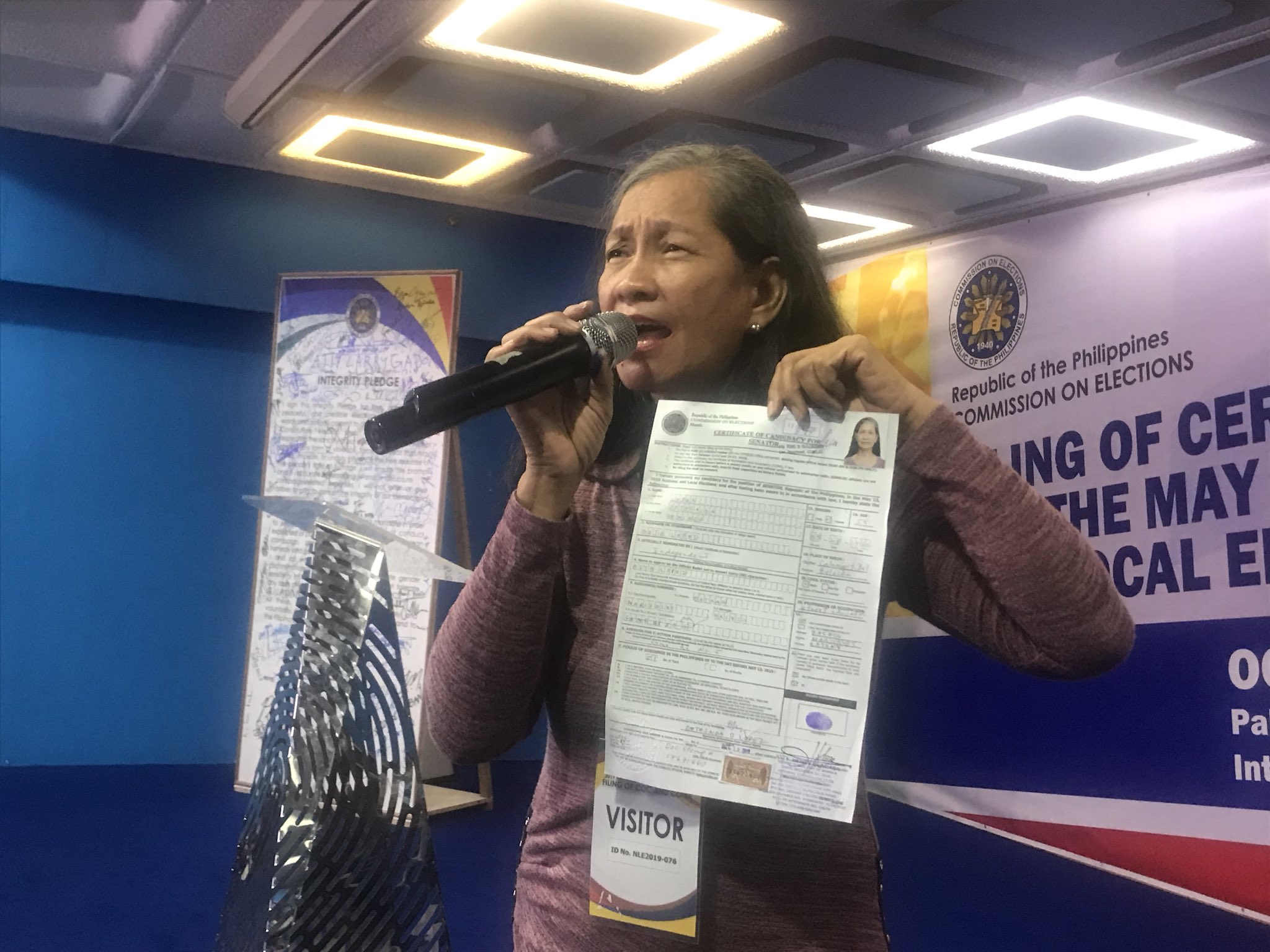So, we just picked up this news over Twitter about a Senate hopeful, Bethaisda Lopez, who is willing to push a bill to ban Clash of Clans and DOTA. According to the post by Catherine Gonzales of Inquirer, Lopez stated that these games “negatively influence the youth”. There was no mention of Lopez’s reference about her claim.
LOOK: Senate hopeful Bethsaida Lopez said she will push for a Senate bill that will ban Clash of Clans and Defense of the Ancients (DOTA), saying these games negatively influence the youth. @inquirerdotnet pic.twitter.com/NYfgJI0qh6
— Cathrine Gonzales (@CGonzalesINQ) October 17, 2018
The same Twitter post was reposted by Inquirer, which received several reactions from netizens.
Based on our research, Bethaisda (almost a namesake of a game development company Bethesda) was declared by the Supreme Court in 2016 as a nuisance candidate after she failed for a petition. We still have yet to hear for updates if the same declaration will be rendered by Comelec for this upcoming elections.

Courtesy Cathrine Gonzales (via Twitter)
In the Philippines, the qualifications to run for Senatorial office are (1)natural born citizen of the Philippines, (2) at least 35 years old on the day of the election, (3) able to read and write, (4) registered voter, and (5) resident of the Philippines for not less than 2 years immediately preceding the day of the election.
A candidate is considered a nuisance if, according to Section 69 of Omnibus Election Code – Article IX”
“Nuisance candidates. – The Commission may motu proprio or upon a verified petition of an interested party, refuse to give due course to or cancel a certificate of candidacy if it is shown that said certificate has been filed to put the election process in mockery or disrepute or to cause confusion among the voters by the similarity of the names of the registered candidates or by other circumstances or acts which clearly demonstrate that the candidate has no bona fide intention to run for the office for which the certificate of candidacy has been filed and thus prevent a faithful determination of the true will of the electorate.”
The case of video games as negative influence to the youth
Researches are being done to further study the effects of video game. Gaming addiction may be the closest effect, but it is a highly debatable and contestable subject. Medical and Psychological associations have declined to officially classify gaming addiction as a disorder.
This year, World Health Organization, released their study about the disorders due to addictive behaviors. According to the study, which can be found on this link:
”Gaming disorder is characterized by a pattern of persistent or recurrent gaming behaviour (‘digital gaming’ or ‘video-gaming’), which may be online (i.e., over the internet) or offline, manifested by: 1) impaired control over gaming (e.g., onset, frequency, intensity, duration, termination, context); 2) increasing priority given to gaming to the extent that gaming takes precedence over other life interests and daily activities; and 3) continuation or escalation of gaming despite the occurrence of negative consequences. The behaviour pattern is of sufficient severity to result in significant impairment in personal, family, social, educational, occupational or other important areas of functioning. The pattern of gaming behavior may be continuous or episodic and recurrent. The gaming behaviour and other features are normally evident over a period of at least 12 months in order for a diagnosis to be assigned, although the required duration may be shortened if all diagnostic requirements are met and symptoms are severe.”
This branch of study stems from Disorders due to addictive behaviors, which states, “Disorders due to addictive behaviours are recognizable and clinically significant syndromes associated with distress or interference with personal functions that develop as a result of repetitive rewarding behaviours other than the use of dependence-producing substances. Disorders due to addictive behaviors include gambling disorder and gaming disorder, which may involve both online and offline behaviour.”
TL;DR – Gaming behavior is considered disordered if it meets three conditions: (1) wala ng control, (2) mas importante ang pag–lalaro kaysa sa buhay, and (3) tuloy pa rin ang paglalaro kahit may mga negatibo nang effects ito sa buhay nya.
Could Bethaisda’s claim be considered baseless?
No.
Bethaisda, however, needs to present a solid basis and platform to counter a disordered behavior brought about by excessive gaming. Why ban gaming if it’s fun and can be a catalyst to bring people together?
If we put merit to the study conducted by WHO, my take is that gaming is a wonderful pastime, a source of income or a tool for bonding friends or family together. However, like anything that’s done or consumed without moderation or – as WHO pointed out – morphs to an addiction, it becomes harmful to anyone.
Giancarlo Viterbo is a Filipino Technology Journalist, blogger and Editor of gadgetpilipinas.net, He is also a Geek, Dad and a Husband. He knows a lot about washing the dishes, doing some errands and following instructions from his boss on his day job. Follow him on twitter: @gianviterbo and @gadgetpilipinas.






